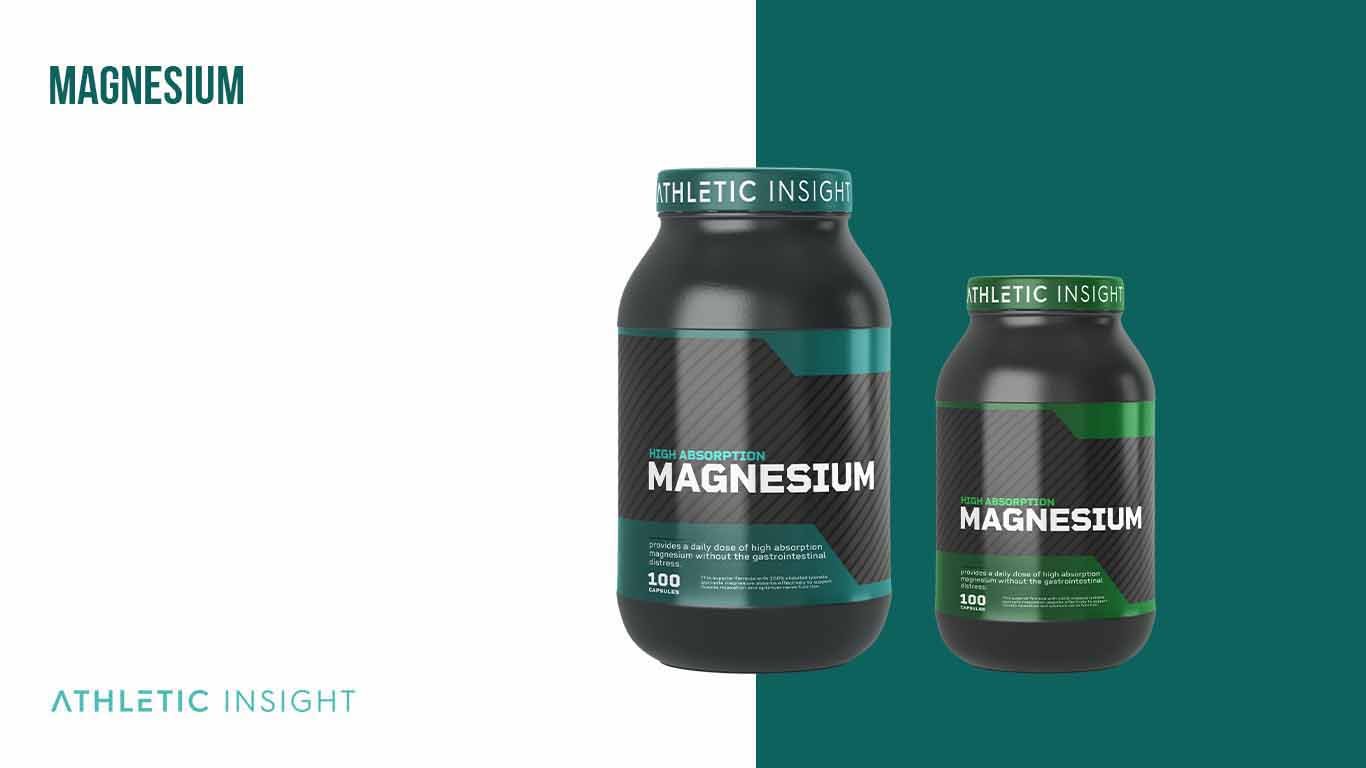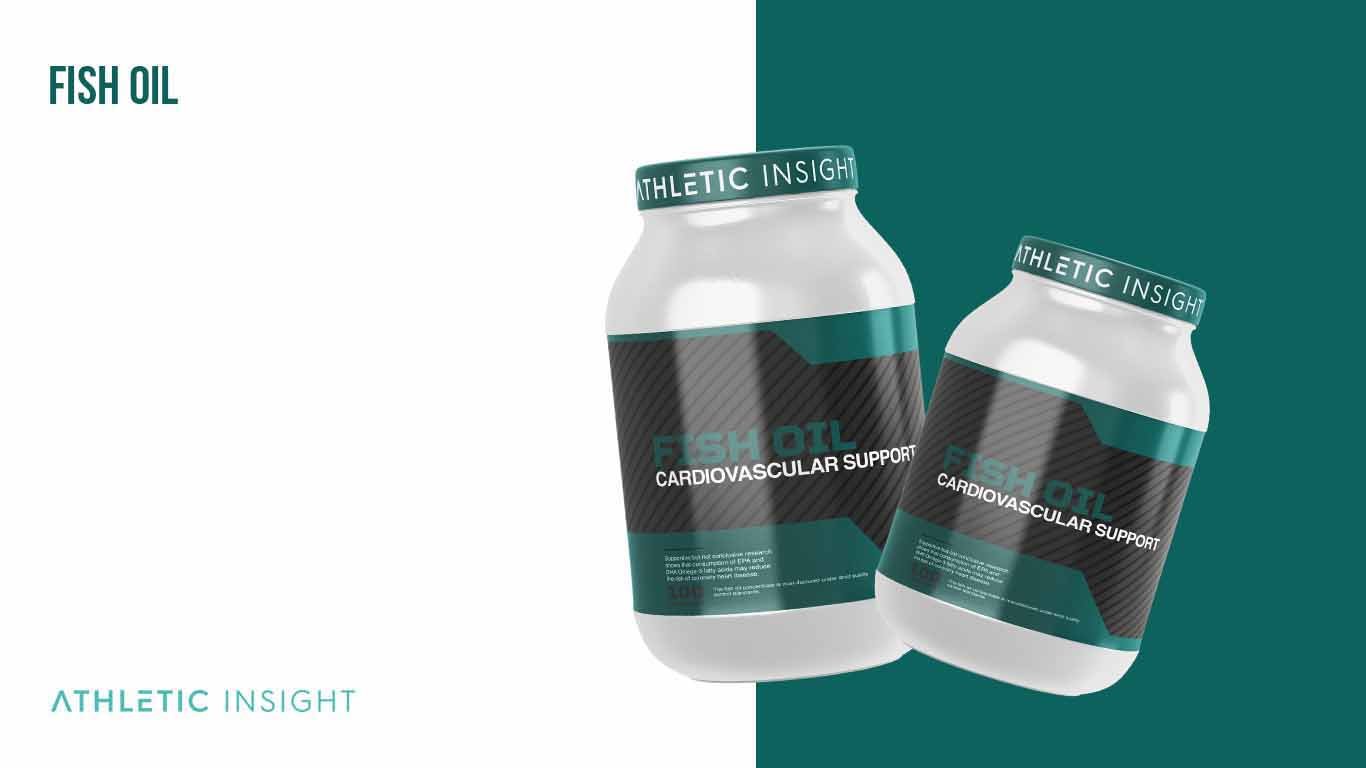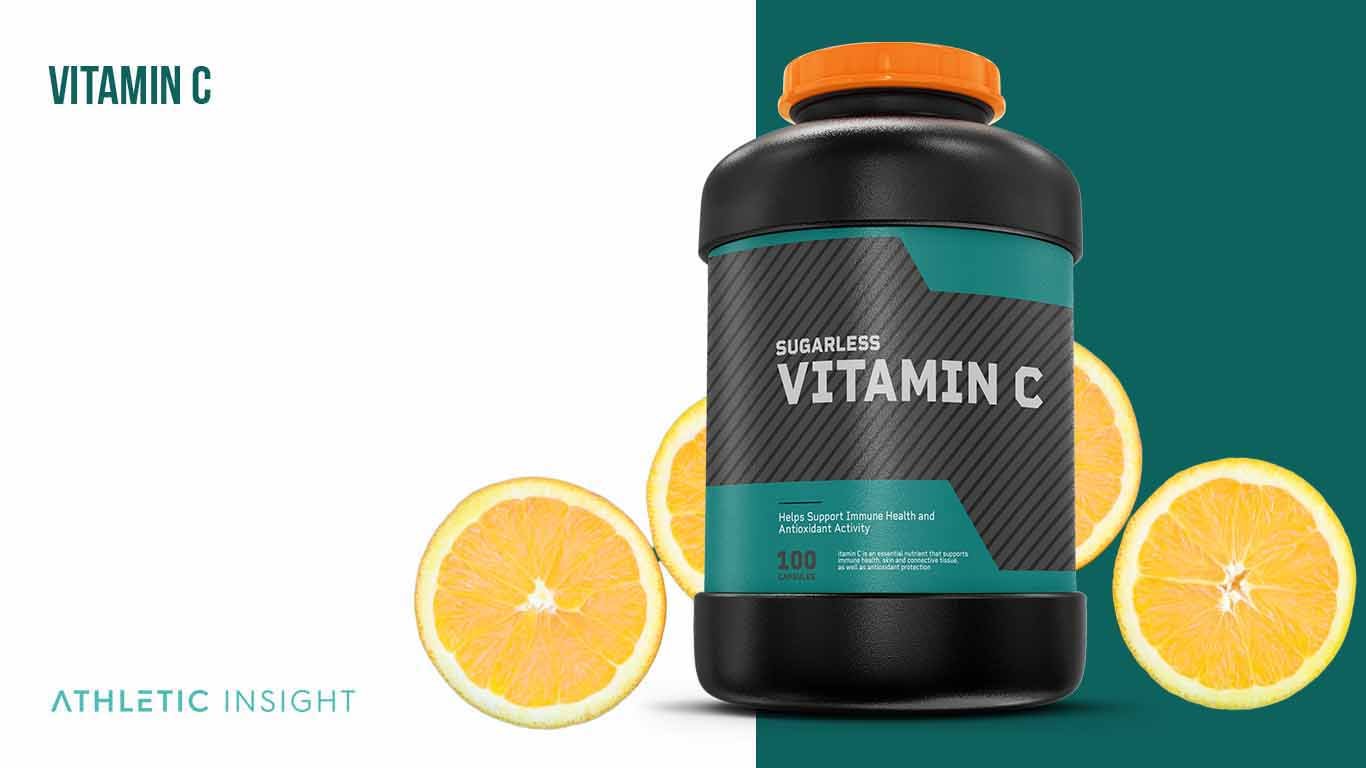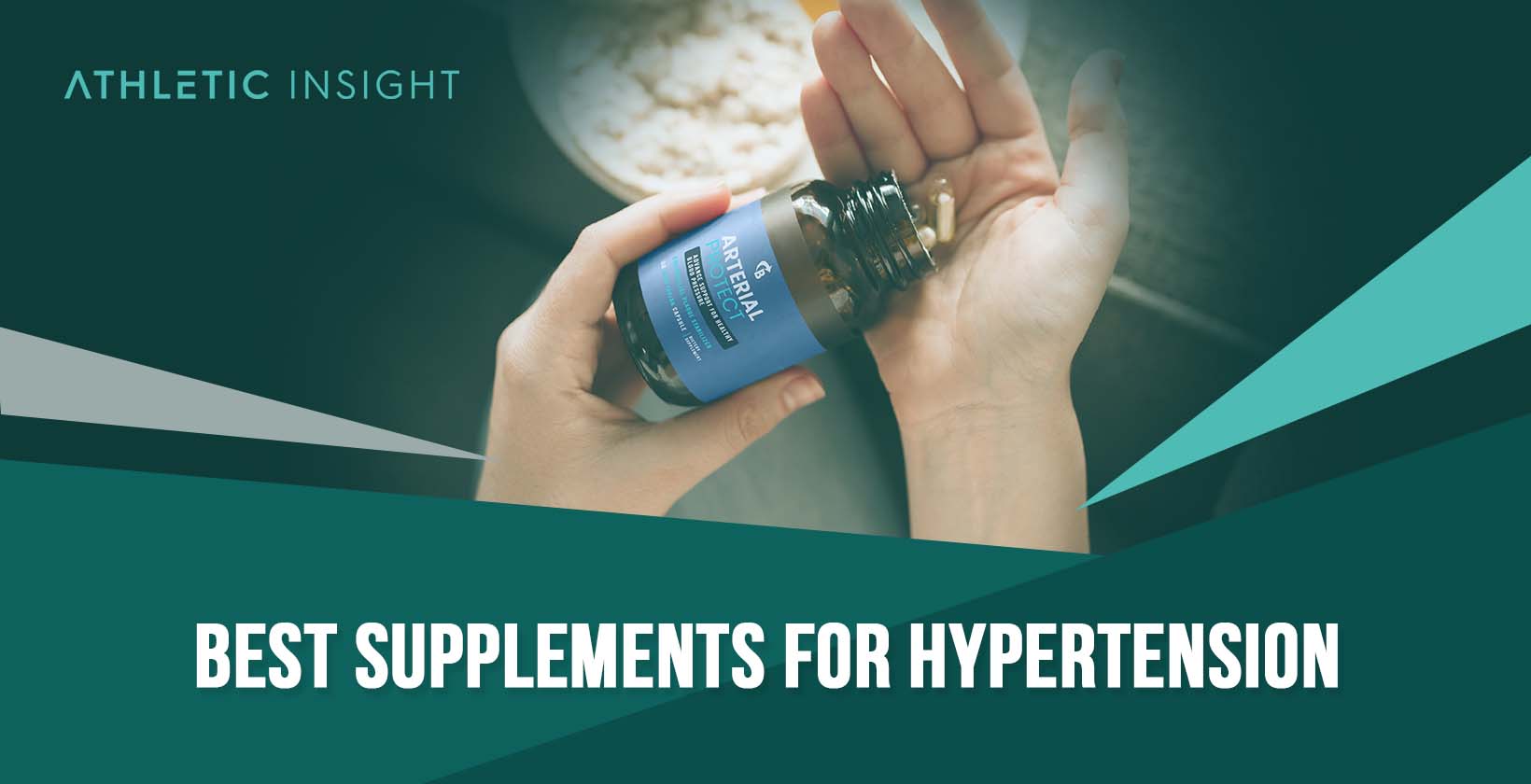A significant number of Americans suffer from high blood pressure. The best supplements for hypertension significantly lower blood pressure, are available without a prescription and are pocket-friendly.
The criteria for the best supplements for hypertension on this list is clinical evidence of blood pressure reduction. There are vitamins to lower blood pressure, too. However, hypertension supplements don’t stand up to the same scrutiny by the FDA as blood pressure medication, even though they may have powerful effects.
Consequently, it’s important to research hypertension supplements before opting for one. The top 4 supplements for hypertension are below.
Athletic Insight Top 4 Products
- Magnesium >>> Best Magnesium Supplements
- B Vitamins >>> Best B Vitamins Supplements
- Probiotics >>> Best Probiotics Supplements
- Fish Oil >>> Best Fish Oil Supplements
- Magnesium
- B Vitamins
- Probiotics
- Fish Oil
Hypertension supplements can pose unforeseen risks because of the active ingredients they contain. Some of these ingredients can weaken the effects of prescription medicine. They may be unsafe for individuals with specific medical conditions.
Besides, combining hypertension supplements with other supplements can lead to severe results. Without further ado, these are the 14 best supplements for hypertension.
1. Magnesium
Magnesium is one of the critical minerals that help the body function correctly. More importantly, magnesium promotes stronger bones and improves heart rhythm. This mineral is present in various foods, including whole grains, legumes, and nuts. Still, magnesium supplements offer huge benefits, especially for people with low magnesium levels.

Interestingly, almost 50% of Americans receive insufficient amounts of magnesium despite it being one of the most abundant minerals in the body. A magnesium supplement can improve nitric oxide production, which plays a signification role in blood pressure reduction.
Many findings indicate that a 350 mg intake of magnesium and blood pressure supplements improved diastolic and systolic blood pressure by 1.78 and 2.00 mm Hg, respectively. Hypertensive individuals may require a minimum of 350mg daily dose of magnesium, alongside eating magnesium-rich foods.
However, this supplement may cause cramps, diarrhea, and nausea. Some magnesium supplement brands include Nature’s Bounty Magnesium 500 mg, Pure Encapsulations Magnesium, and Doctor’s Best High Absorption Magnesium.
Magnesium supplements aren’t expensive because you can easily find them in food. These supplements cost between $10 to $40.
Magnesium supplement intake may interact with medications like diuretics and antibiotics. Fortunately, it’s unlikely to overdose on this macronutrient because the body excretes any excess through urine.
2. B Vitamins
A B vitamin is a class of water-soluble vitamins that lower blood pressure and help the body make energy from food. Some popular B Vitamins include Thiamin (B1), riboflavin (B2), and niacin (B3). Others are pantothenic acid (B5), pyridoxine (B6), biotin (B9), and cobalamin (B12).
These B vitamins are plentiful in beans, cowpea, grains, dairy products, and meat. All B Vitamins are suitable supplements to lower blood pressure fast, especially systolic pressure and oxidative stress.
This B vitamin supplement has mild side effects that include stomach cramps and gas. An overdose is unlikely because of its water-soluble properties that ensure easy and quick disposal by the body. B Vitamins are a dietary supplement, and the effectiveness of this supplement varies by brand.
Some popular brands include Thorne, Nature’s Bounty Super B Complex, Divine Bounty Super B Complex, and Nature Made Stress B Complex. A B Vitamin supplement is easily affordable, ranging from $10 to $20.
3. Probiotics
Probiotics are good yeast and bacteria that improve the body’s healthy flora. These microorganisms occur naturally and help to keep fungus and harmful bacteria at bay. Probiotics are an affordable OTC dietary supplement with an average price of $20.
Many probiotic studies show immense benefits for preventing and treating gastroenteritis and irritable bowel syndrome. Probiotics may also help with vaginal health, including reducing bad microbes that cause bacterial vaginosis and yeast infections.
Regular probiotic consumption may reduce diastolic blood pressure by 2.38 mm Hg and systolic blood pressure by 3.56 mm Hg. While many individuals experience little to no side effects, probiotics can cause bloating and gas. However, these effects often subside with continuous use.
It’s vital to start with small doses of probiotics, increasing the dosage over time which helps the body adjust to the supplements and minimize side effects. Moreover, people with intolerances and allergies need to check the product labels because probiotic supplements may contain ingredients that can cause a reaction.
Antibiotics can interact with probiotics, reducing their performance. Lactobacillus and Bifidobacterium are two good bacteria you can find in probiotic brands like Provitalize, NewRhythm Probiotics, and Garden of Life for Women.
4. Fish Oil
Fish oil is the liquid fat from fish like tuna, anchovies, mackerel, trout, and salmon. What these fish have in common is significant amounts of omega-3 fatty acids. Omega-3 fatty acids help with swelling, pain, and blood clot prevention.

Fish oil supplements may reduce blood pressure for hypertensive individuals, especially when taken orally. The supplement is safe in correct doses that don’t exceed 3 grams daily. Any higher dosage may invite the risk of bleeding.
Fish oil is a dietary supplement with side effects like loose stools, nosebleeds, and heartburn. Be mindful that some fish oil supplements may contain harmful chemicals like mercury.
Additionally, fish oil supplements might be unsafe for individuals using a defibrillator, causing irregular heartbeats.
People with seafood allergies should avoid fish oil supplements. Fish oil doesn’t contain other vitamins for blood pressure, but it might interact with other blood pressure medications. Consequently, blood pressure may be lower than required.
Some popular fish oil supplements include Sports Research Triple Strength, Nature’s Bounty Fish Oil, and Viva Naturals Triple-Strength. Fish oil supplements are pricey, ranging from $20 to $60.
5. L-Arginine
L-Arginine is a vital amino acid that’s the building block of protein. It’s a semi-essential amino acid because it’s essential in specific conditions like severe illness, trauma, and pregnancy.
L-Arginine plays a huge role in the body, and deficiency can affect organ function leading to severe health consequences.
Fortunately, this nutrient is present in protein-rich foods like dairy, fish, meat, and soy products. L-Arginine is one of the best supplements for high blood pressure, and it’s proven that the amino acid can significantly lower systolic and diastolic blood pressure numbers.
Hypertensive individuals that take intravenous or oral L-Arginine supplements may have their systolic and diastolic blood pressure reduced by 5.4 mmHg and 3.1mmHg.
Overall, L-Arginine supplements are safe for use. However, common side effects include abdominal pain, bloating, diarrhea, and nausea.
L-Arginine may be unsafe in doses larger than 9 grams daily. People with kidney disease, asthma, cirrhosis of the liver, and low blood pressure shouldn’t take it because of potentially harmful effects.
Some popular L-Arginine supplements include Arazo Nutrition Premium L Arginine, Amazing Formulas L-Arginine, and NOW Supplements L-Arginine 1000mg. L-Arginine is wallet-friendly, with a price ranging from $10 to $40.
6. Vitamin D
Vitamin D is a fat-soluble vitamin that helps the body resist specific diseases while regulating essential minerals like calcium and phosphorus. The sun acts as a catalyst for vitamin D production in humans. Still, it’s one of the best supplements to lower blood pressure.
The vitamin may also help reduce depression while improving immune health. More importantly, Vitamin D supplements may help reduce systolic high blood pressure for obese individuals or people over 50 years old.
Vitamin D supplements also help with cardiovascular health, reducing the risk of heart disease. Individuals who spend more time indoors and senior citizens above 65 are at risk of deficiency for this vitamin.
Take 400 IU to 1000 IU of this supplement daily to ensure healthy levels of vitamin D in the body. Adults lacking vitamin D may experience weakness, aches, stress fractures to the pelvis, hips, and legs, including muscle pain.
Vitamin D is easy to access. However, excessive amounts of this supplement can significantly increase calcium levels which may result in symptoms such as nausea, vomiting, abdominal pain, confusion, and increased thirst.
Excessive Vitamin D can also cause hypercalcemia which may harden your blood vessels, lungs, kidney, and heart tissue. Excessive intake often occurs through prescription mistakes. Consequently, choosing brands like Thorne, Vitafusion, NatureWise, and Nature’s Bounty Vitamin D3 will provide you with the correct usage.
Vitamin D supplements to lower blood pressure are some of the cheapest on the market, ranging from $10 to $30. It’s not a hard-to-find vitamin and it’s easily affordable.
7. Vitamin C
Vitamin C is a water-soluble vitamin present in various foods. Some excellent sources of Vitamin C include vegetables and citrus fruits. While various mammals can produce this vitamin, humans can’t, making it essential.

Getting this vitamin from food sources is possible, though supplements help you meet the required thresholds. It’s no surprise the many benefits of vitamin C due to its numerous antioxidant properties.
Consequently, vitamin C is an immune booster that safeguards cells from free radicals harmful to the body. Vitamin C is one of the few essential vitamins for high blood pressure.
Vitamin C supplements can help to relax blood vessels, thus reducing blood pressure. Additionally, the supplements can reduce diastolic blood pressure by 1.5 mmHg and systolic blood pressure by 3.88 mmHg for healthy individuals.
Vitamin C supplements can reduce hypertensive adults’ systolic and diastolic blood pressure by 4.9 mmHg and 1.7 mmHg, respectively.
Vitamin C is safe for most people. However, possible side effects include headache, heartburn, nausea, and stomach cramps. Higher doses of vitamin C may increase the risk of side effects.
The recommended vitamin C allowance is 75 to 90 mg daily, and any dosage of more than 2000 mg is unsafe.
Vitamin C supplements also interact with malaria medication making it less effective, especially for hypertensive adults suffering from malaria. The supplement is readily available in physical and online stores.
Some brands include Emergen-C 1000 mg, Nature Made Extra Strength, and Nature’s Bounty Vitamin C. The supplement is cheap because it’s easily accessible in food with a cost ranging from $10 -$20.
8. Potassium
Potassium is a critical mineral that’s useful for various body functions. This mineral is highly reactive with water and is present in most body cells, helping with heartbeat regulation, muscle movement, and nerve function.
People with low potassium can suffer hypokalemia, which can be severe. This mineral has several dietary sources, including green veggies and many fresh foods.
The human body benefits from potassium because it helps to remove some of the negative effects of salt that cause high blood pressure. Additionally, potassium also reduces heart disease risk and stroke.
People taking medicines with potassium present should avoid potassium supplements that will increase potassium levels over the recommended threshold.
Moreover, individuals managing chronic kidney disease must avoid using potassium supplements because the kidneys may not expel the excess potassium efficiently.
Potassium supplements cause various side effects, including diarrhea and vomiting. Besides, taking potassium supplements via injection may cause phlebitis, thrombosis, or erythema. Potassium supplements are not advisable for people using ACE inhibitors, thiazide and loop diuretics, or potassium-sparing diuretics.
Potassium supplements for high blood pressure include Thyrosafe, Best Naturals, and Now Supplements ranging from $8 to $85.
9. Ginger
Ginger is one of the few herbal supplements that lower blood pressure. It’s great for hypertension because it contains quality minerals and vitamins. It’s an herb that works well for food and medicine.
This plant is better known for its anti-inflammation properties. It effectively treats morning sickness, rheumatoid arthritis, vomiting, nausea, and respiratory infections.
Ginger is also known as the Healing Root. Ginger supplements can reduce systolic blood pressure by 6.36 mmHg and diastolic blood pressure by 2.2 mmHg.
Another benefit of ginger is its usefulness in improving saliva flow and digestion. The root also features various antioxidants that help prevent disease and cell damage.
However, pregnant women must be careful using this supplement because of the increased risk of a miscarriage, especially when it’s taken in excessive doses. It’s unclear what the optimum dosage of ginger is daily, and active ingredients vary from brand to brand.
Ginger supplements are usually safe when you take them orally and correctly. Still, some individuals may suffer stomach discomfort, heartburn, and diarrhea. Ginger supplements may also cause excessive bleeding for some menstruating women.
Fortunately, ginger is available over the counter (OTC) as a dietary supplement. It’s very affordable since it’s a common herb.
Some ginger supplement brands include Nature’s Way Ginger Root, Ginger Root Capsules 1500 mg, and Ginger Root by Puritan’s Pride. The cost ranges from $10-$20.
10. Coq10
Coenzyme Q-10 is a natural nutrient that exists in almost all the cells of the human body. It’s responsible for several functions like energy production and helps to neutralize free radicals.
Coq10 treats cardiovascular issues like angina and congestive heart failure. It’s still debatable what supplements lower blood pressure.
Interestingly, there isn’t a standard dosage of Coq10 supplements, and typical doses range from 50 mg to 1000 mg daily. Remember that various supplement brands feature different active ingredients.
Side effects of Coq10 include heartburn, nausea, and diarrhea. Coq10 interacts with thyroid medication and blood thinners, and doctors do not recommend it for lactating mothers or children.
Individuals with chronic illnesses like diabetes and liver problems must exercise caution before using this supplement because of the likelihood of lower blood pressure and sugar levels.
Some Coq10 brands include Doctor’s Best High Absorption, Qunol Ultra CoQ10 100 mg, and Nature Made CoQ10 200 mg. This dietary supplement is slightly expensive, costing around $20 to $40.
11. Green Tea
Green tea is a herbal tonic from the tea plant. The dried buds and leaves are helpful for brewing oolong and black tea.
Green tea contains caffeine but is also rich in polyphenols that offer numerous benefits. Green tea supplements may help individuals with weight loss while improving heart health.
More importantly, daily consumption of green tea can help reduce systolic blood pressure and cholesterol levels.
Still, green tea has side effects that include liver damage, anxiety, irritability, insomnia, and stomach cramps for adults with caffeine sensitivity.
The FDA doesn’t oversee green tea supplements, and many brands include other active ingredients that may harm your health.
Green tea doesn’t contain magnesium for high blood pressure, but it’s an affordable dietary supplement. Some popular brands include The Republic of Tea, Bigelow Classic Green Tea, and Organic Green Tea Bags. The supplement is cheap and available in various stores.
12. Garlic
Garlic is a herb that offers many benefits as a food spice thanks to its strong aroma and taste.
The herb provides various benefits for people with high cholesterol levels, including the common cold and osteoarthritis.
Allicin is the cause of garlic’s smell because allicin is a chemical that gives the herb its effects. However, odorless garlic exists but removing the allicin properties may alter the herb’s effectiveness.
Garlic is also helpful for treating numerous conditions, including fungal skin infections and tick bite prevention.
More importantly, it’s likely that garlic supplements may help reduce high blood pressure for hypertensive individuals. While the supplement is a healthy addition to a good diet, it has a few side effects.
The herb increases bleeding risk because of its antithrombotic properties, and people undergoing surgery should avoid it.
Garlic supplements may contain various sulfur compounds that cause garlic breath, especially when you take them in significant amounts. Other side effects include heartburn, bloating, stomach pain, and gas.
There isn’t a universal dosage for garlic supplements, so buying from reputable brands is vital to reduce contamination risk.
Some garlic supplement products include Puritan’s Pride Odorless Garlic, BRI Nutrition, and Kyolic Aged Garlic Extract. Garlic is a dietary supplement that’s easy to buy, with an average price of $15.
13. Beetroot
Beetroot is the root section of beet—a popular vegetable renowned for its reddish color, aroma, and earthy flavor. It has numerous medicinal properties and treats constipation, indigestion, kidney disorders, and some respiratory problems.
Many athletes use beetroot to boost performance, especially for muscle soreness. Beetroot has numerous minerals and vitamins, high fiber, and low-calorie content.
Interestingly, beetroot is one of the best supplements for blood pressure because it contains nitrates which help to lower blood pressure significantly.
In addition to gas and bloating, Beetroot supplements contain oxalates, limiting the body’s ability to absorb calcium.
Still, the benefits outweigh the risks, and users may opt to increase their calcium intake to meet recommended levels.
Beet is a common vegetable, easily accessible, so the supplements are affordable. Some popular beetroot supplements include Pomona Wellness Organic Beet Supplement, Bronson Beet Root 2000mg, and Beet Root Powder Capsules 8000mg.
14. Melatonin
Melatonin is a body-secreting hormone the pineal gland makes. It’s responsible for regulating the circadian rhythm. Melatonin influences the sleep-wake cycle by lowering our body temperature and causing drowsiness.
This chemical is also responsible for mood regulation, immune activity, memory retention, learning, fertility and reproduction, and dreaming.
Taking Melatonin supplements every night can reduce blood pressure for males. In addition to hypertension, Melatonin supplements might be useful for treating sleep disorders like insomnia, delayed sleep phase, and pre-surgery and post-surgery anxiety.
Moreover, people with insomnia who use melatonin supplements two hours before sleeping are likely to enjoy better sleep.
Melatonin is an essential vitamin to lower blood pressure. It can help with eye health and reduce depression symptoms as an antioxidant.
You can take 0.5 to 10 MG of melatonin daily. However, increasing intake over time is best, starting with the smallest doses until you find the right amount for your needs.
Melatonin isn’t addictive and safe for long- and short-term use. Still, taking melatonin isn’t without side effects. Some indications are that taking this supplement over time will affect the body’s natural ability to produce the hormone.
Common side effects of melatonin include dizziness, sleepiness, nausea, and headaches. The supplement may interact with medications like blood thinners, antidepressants, and other medicines for blood pressure.
Some melatonin brands include Olly Sleep, Pure Encapsulations Melatonin, and Nature Made Melatonin.
Melatonin is readily affordable compared to other hypertension supplements, with a cost ranging from $10 to $100.
Even though it’s a dietary supplement, pregnant and lactating mothers are best advised not to use melatonin for hypertension.
What Is Hypertension?
Hypertension is a condition where blood pressure is higher than normal levels. Arteries create blood flow resistance.
Narrower veins and arteries develop higher resistance, thus increasing blood pressure. The long-term effects of this high blood pressure can lead to severe medical conditions, including heart disease and stroke.
What Are Hypertension Supplements?
Hypertension supplements are natural supplements for high blood pressure. These supplements are easy to buy over the counter without a prescription from a medical professional. Hypertension supplements are available in many forms, including liquid, powder, and pill.
What Are the Effects of Hypertension Supplements?
Hypertension supplements effectively lower blood pressure through various means. For instance, excessive salt or sodium in food can spike blood pressure. Taking natural supplements to lower blood pressure can improve your health.
The kidneys fail to remove water effectively, leading to an increase in blood pressure. However, potassium rids the body of sodium through urine and relaxes the artery walls. Both actions help to lower blood pressure levels.
What Supplements Have the Potential To Cause Hypertension?
Nutritional supplements help the body to function. However, some increase blood pressure in individuals, while others may render blood pressure medication ineffective. Supplements that can cause hypertension are below.
- Arnica
- Ginseng
- Guarana
- Licorice
- Ephedra
- Gingko
Where to Buy Hypertension Supplements?
People can buy Hypertension supplements over the counter (OTC). You can buy them online from Amazon or in person at drugstores or Walmart.
How Do Supplements Decrease Blood Pressure?
Supplements decrease blood pressure by helping the body remove harmful toxins that increase blood pressure and relax the blood vessels.
What Are the Ingredients of Blood Pressure Supplements?
The ingredients of blood pressure supplements include essential and non-essential vitamins, that help to reduce blood pressure. These ingredients include L-Arginine, Vitamin C, Fish Oil, and B Vitamins.
What Is the Optimum Frequency for Blood Pressure Supplements?
The optimum frequency for blood pressure supplements is daily for the best results. However, the frequency of usage will depend on the supplement label direction.
Which Minerals Increase Blood Pressure?
Some minerals that spike blood pressure are below.
- Glycyrrhizin in licorice
- Salt in sodium supplements
- Calcium
Which Minerals Decrease Blood Pressure?
The following minerals reduce blood pressure.
- Potassium
- Magnesium
- Calcium
Magnesium blood pressure effects work best when you take a moderate amount. Interestingly, calcium is one mineral that helps to relax or tighten the blood vessels, thereby increasing or reducing blood pressure.
Is a Prescription Required To Purchase Hypertension Supplements?
No, a prescription isn’t necessary to buy hypertension supplements because they are primarily dietary. Moreover, hypertension supplements do not claim to treat, cure, or prevent hypertension, and the nutrients and minerals in the supplements are available in various foods.
Who Should Use Hypertension Supplements?
People at risk of high blood pressure should take high blood pressure supplements. However, hypertensive individuals require medication.
How Does Medicine Define Hypertension?
According to the World Health Organization, hypertension is a systolic blood pressure reading equal to or greater than 140 mmHg for both days or a diastolic blood pressure reading equal to or greater than 90 mmHg for both days.
However, comprehensive research shows that herbal and mineral supplements can reduce blood pressure.



